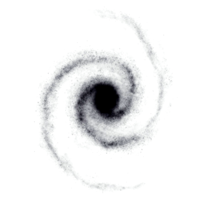"10 Dogmas are Holding Back Science" | Rupert Sheldrake Ph.D.
/[video below]
"We are on the threshold of a massive paradigm change"
announced biologist and author Rupert Sheldrake when he visited our university. It was the third time I'd seen him speak in person, and it was clear that Rupert's pro-science message was as strong and articulate as ever. For all of the incredible advances in science and technology, unexamined assumptions limit the potential of a truly open-minded exploration of the universe and life's place in it.
For Sheldrake, there are at least 10 common assumptions in science, which time has hardened into dogmas. Each of these, argues Sheldrake, are ripe to be challenged. Among them include the belief that mind and consciousness are an epiphenomenal illusion with no essential reality.
Not only does this view, known to philosophers as materialism, seem ever more difficult to defend; there seems to be a growing wealth of evidence that mind and consciousness are not as confined to the brain as the materialistic view asserts. Sheldrake has himself contributed several scientific studies supporting the existence of anomalous extended features of the mind, known by researchers as "psi."
The prevailing machine metaphor for the universe is outmoded by that of a developing organism.
The idea that nature is a purposeless mechanical process without meaning or direction is not a proven scientific reality. According to Sheldrake, the prevailing machine metaphor for the universe is outmoded by that of a developing organism.
In the video below, Sheldrake outlines the 10 dogmas that he believes are holding back science and discovery. Whether or not you agree with each of these "dogmas" it's difficult to disagree with Sheldrake, that science, like life, is "more interesting and more fun" when you keep an open mind.
For more information about Sheldrake's psi research check out the video below. ▽













